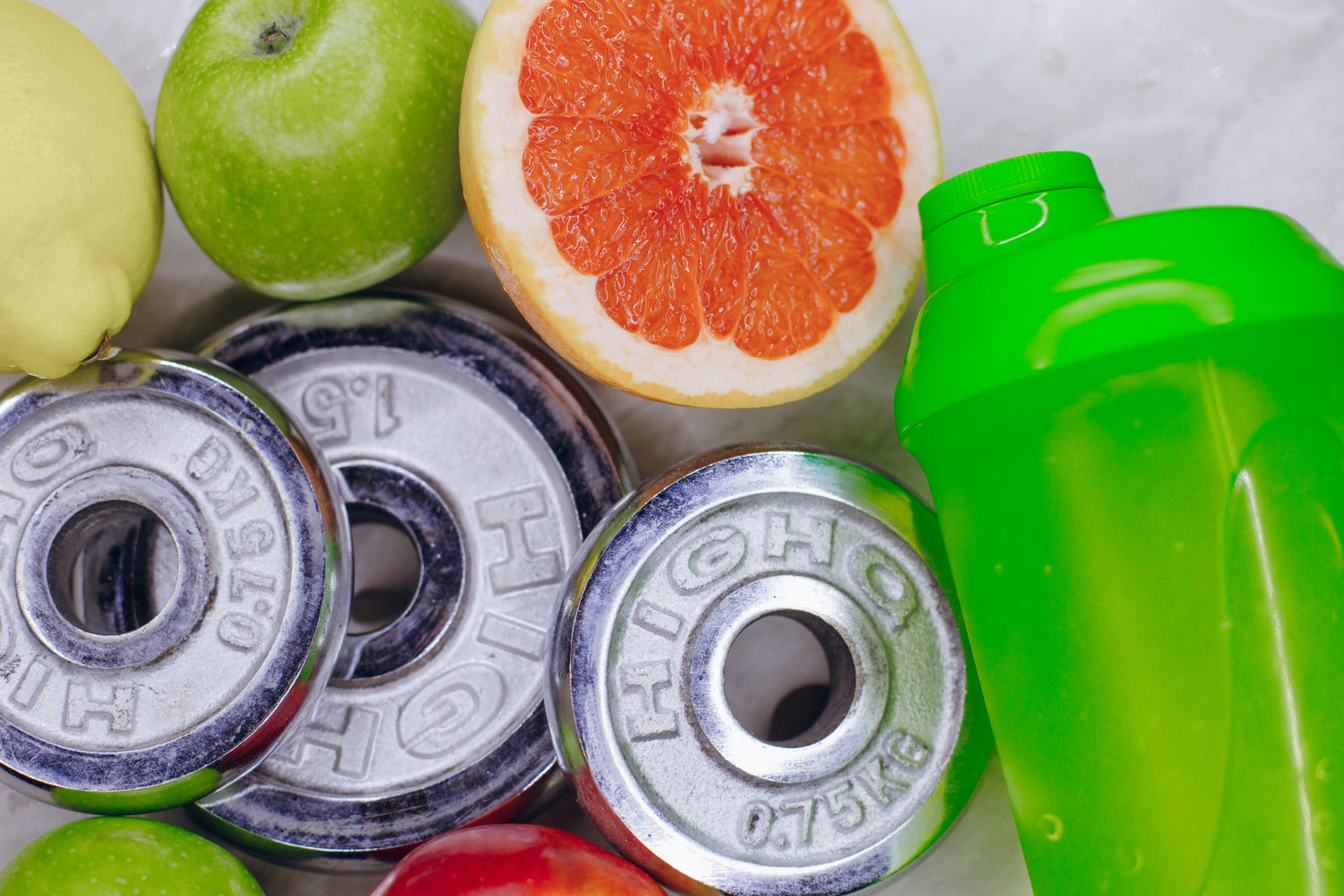Many people know the problem: Despite regular training, the muscles just won't grow. Effective muscle building does not come from exercise alone - a balanced diet (Nutrition), sufficient recovery, and an optimal training plan also play a role. But lack of time, inadequate nutrient intake, or genetic factors can also hinder progress in building muscles. Here, dietary supplements can provide valuable support: Especially in strength training and bodybuilding, supplements like creatine, whey protein, casein, and beta-alanine provide important amino acids and nutrients that specifically promote muscle growth. Not only the correct intake of the products is important, but also the amount and timing of protein powder and supplements are essential. But which muscle building dietary supplements are really useful and how do they affect the body? We reveal the best muscle building supplements such as leucine, valine, and isoleucine, explain their scientific effects, and describe how supplementation can support muscle growth and body weight.
Why dietary supplements can help with muscle building
Dietary supplements are a complement to normal nutrition and contain individual or combined minerals, vitamins, and trace elements that supply the body with nutrients and support bodily functions. In sports, supplementation with macronutrients like proteins and carbohydrates as well as micronutrients like vitamins and minerals is intended to support muscle growth and increase training intensity. Especially during intense training sessions, athletes consume more energy and nutrients, creating an increased demand. The German Nutrition Society recommends a protein intake of 1.2 to 2.0 g per kg of body weight for physically active people depending on the training session, which can be achieved not only through natural protein sources like meat, fish, eggs, and milk as well as plant-based sources like legumes or quinoa but also through the right dietary supplements like Protein Pro.
Proteins for effective muscle building
Proteins are macronutrients and fundamental building blocks for the function of our body. Since we do not have a protein store, proteins must be taken in through food. Besides muscle building, protein is also important for skin and hair as well as hormone balance. Proteins are made up of 21 different amino acids, most of which can be produced by the body itself - but only if enough proteins are available. There are nine essential amino acids that the body cannot synthesize itself and must be obtained through diet. Our muscles consist of proteins and require sufficient proteins and amino acids for growth and repair after training. During exercise, tiny tears occur in the muscle fibers, which must be repaired by amino acids to allow the muscles to grow. Besides building and regenerating muscle mass, proteins also help maintain muscle tissue. If the protein requirement cannot be met through normal nutrition, dietary supplements for muscle building like Whey Protein and Cassin help with muscle growth.
Creatine for energy supply to the muscles
The body's own substance creatine also comes into play in muscle building and serves to supply energy to the muscles. The study "The effects of creatine supplementation on performance and training adaptations" by Kreider, R. B. et al. (1998) examined how creatine increases ATP synthesis in the body and raises the availability of phosphocreatine in the muscles. Creatine not only supports the energy supply of the muscles but also enhances muscle-building processes through increased ATP production. Supplements for muscle growth such as creatine can improve muscle strength and endurance, especially during intense training phases, and provide a larger amount of energy in the form of adenosine triphosphate in a short time, allowing us to achieve better performance. This improved energy supply enables an increase in training intensity and greater muscle strain, which leads to long-term muscle growth.
Amino acid for muscle protein synthesis
The amino acids leucine, valine, and isoleucine have also been identified in numerous scientific studies as essential building blocks for muscle growth. For muscle proteins to be produced in the body at all, we must consume amino acids in sufficient quantities. Especially the amino acid leucine, one of the BCAAs, promotes the formation of new tissue, inhibits protein breakdown, and supports the maintenance of muscle protein. Valine also influences the function of muscles as well as nerves and supports protein synthesis. Thus, the essential amino acid stimulates the release of insulin, regulates blood sugar, and enables faster uptake of amino acids into the muscles. Another component of the Branched Chain Amino Acides is isoleucine: The branched-chain amino acid supports the regeneration of muscle tissue and is an energy supplier during sports activities. The intake of isoleucine supplements helps with the building and healing of muscle tissue.
The best muscle-building supplements from Nutrador
To build muscles, we need to consume enough calories, proteins, and essential nutrients. When a normal diet cannot meet this need, the best muscle-building supplements come into play:
Nutrador Carnosin Capsules
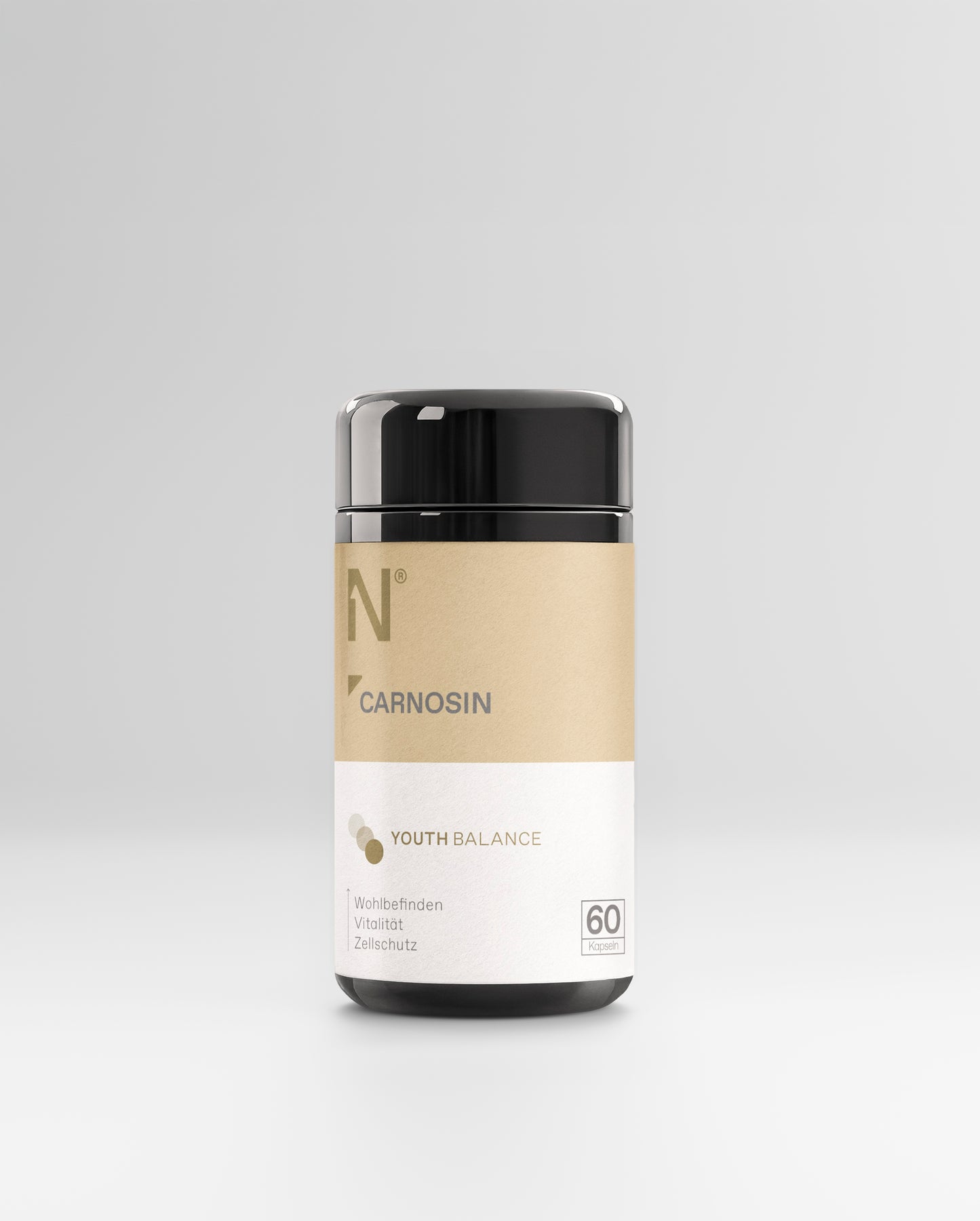
The Nutrador Carnosin Capsules support muscle regeneration after physical activities and help reduce muscle fatigue. This happens according to scientific studies because carnosine balances the acid-base ratio in muscle cells. Long-term use also promotes blood circulation and the health of blood vessels, which positively affects overall well-being. Each capsule contains 470 mg of L-carnosine with multipotent dipeptide derived from the amino acids beta-alanine and L-histidine. Due to the special formulation of L-carnosine in Nutrador capsules, the product is well absorbed by the body, optimally supporting its effect.
Nutrador Alpha GPC Capsules
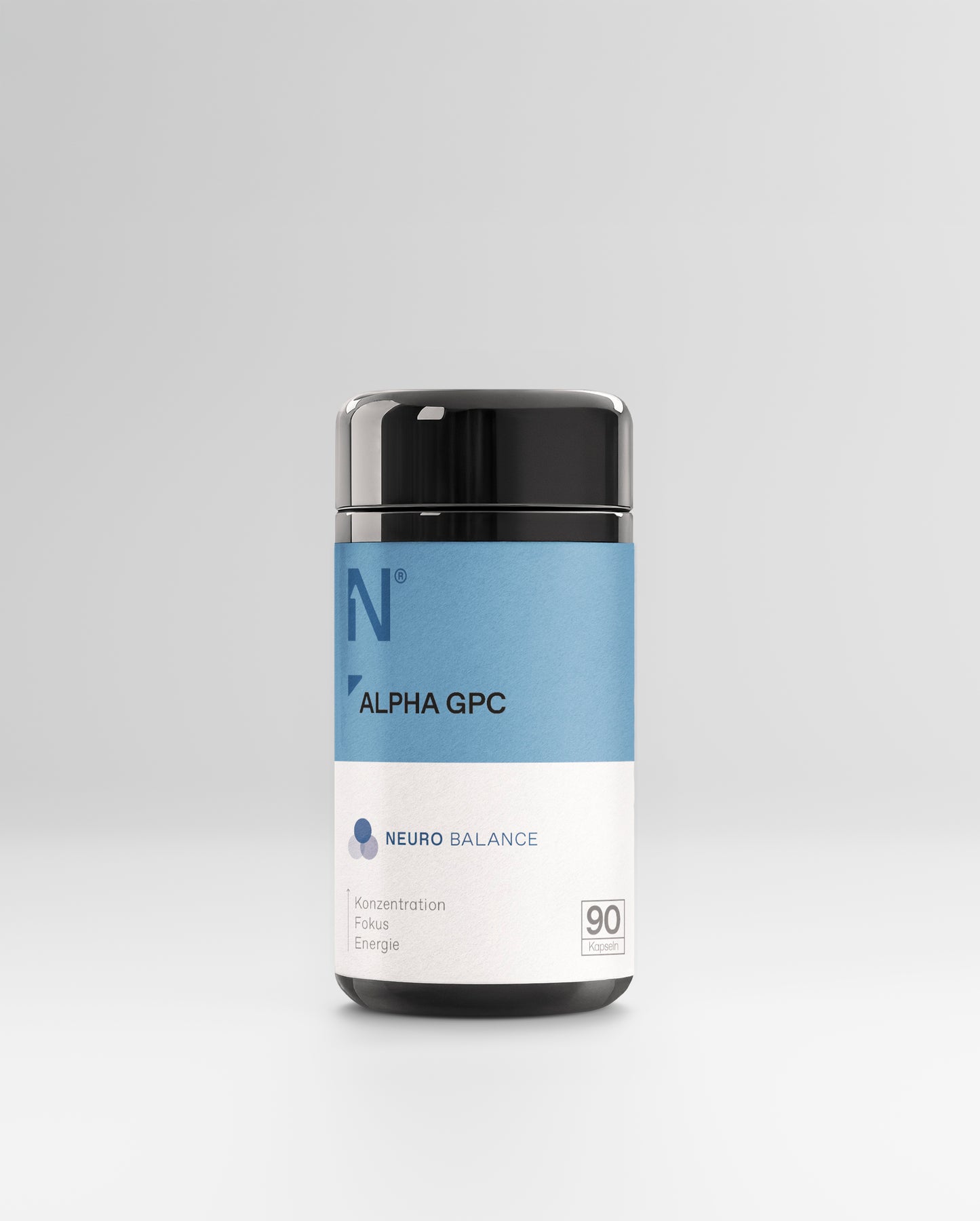
The Nutrador Alpha GPC Capsules improve physical performance and can increase endurance as well as muscle strength to achieve enhanced athletic performance. By increasing body endurance, performance during repeated exertion continually improves. Alpha GPC consists of choline and phosphatidylcholine, which play an important role in body function. While choline promotes communication between nerves and muscles, phosphatidylcholine supports cell health for better muscle regeneration. Nutrador Alpha GPC Capsules can minimize muscle loss and promote the muscle growth process.
Nutrador Taurine Capsules
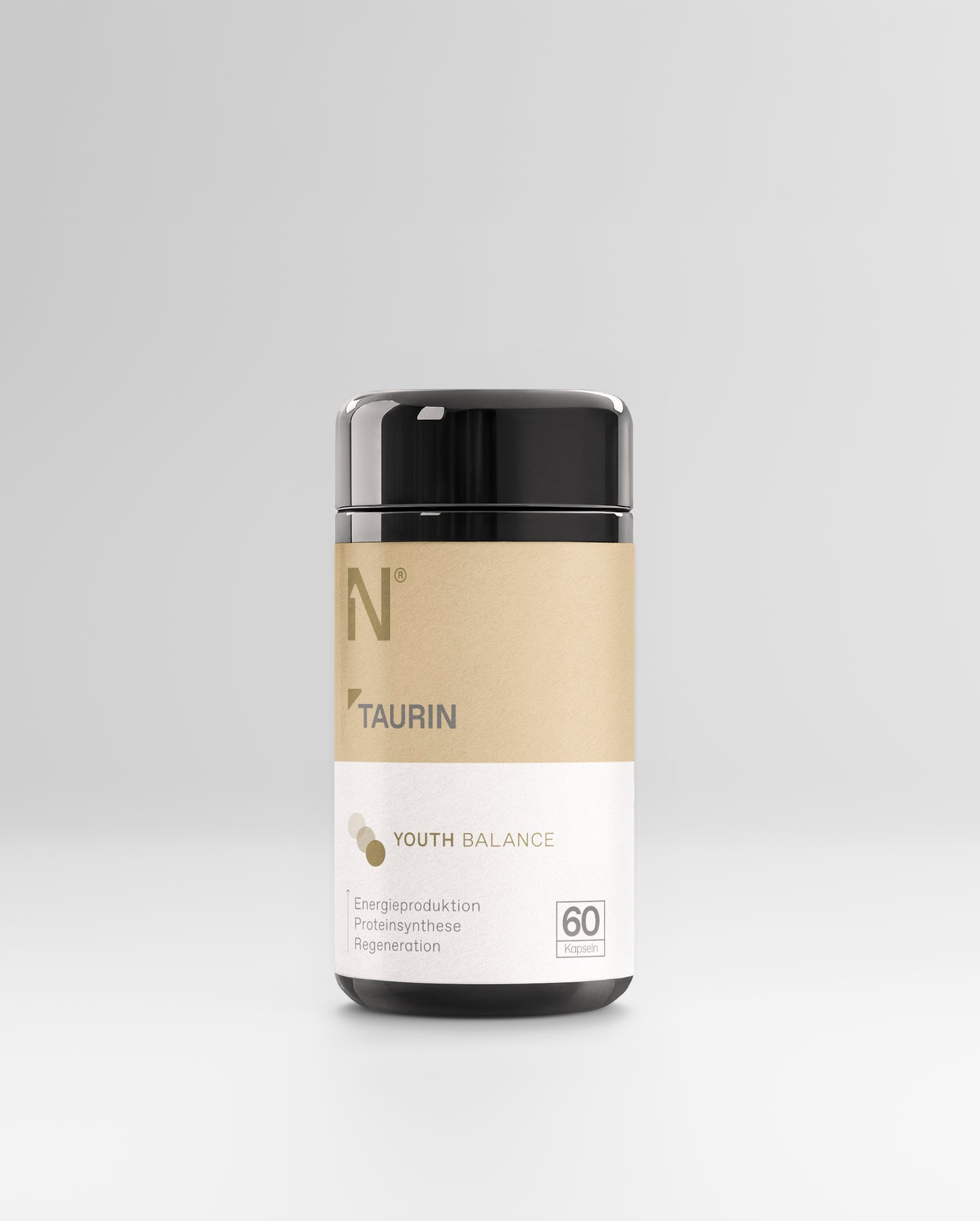
The Nutrador Taurine Capsules stimulate muscle contraction and also improve physical performance, which can enhance training performance. A well-functioning cardiovascular system is also important for athletes, which is strengthened by the taurine contained. The amino acid provides the necessary energy to increase one's performance and to be able to fully exert oneself during training.
Omega-3 Fatty Acid Capsules
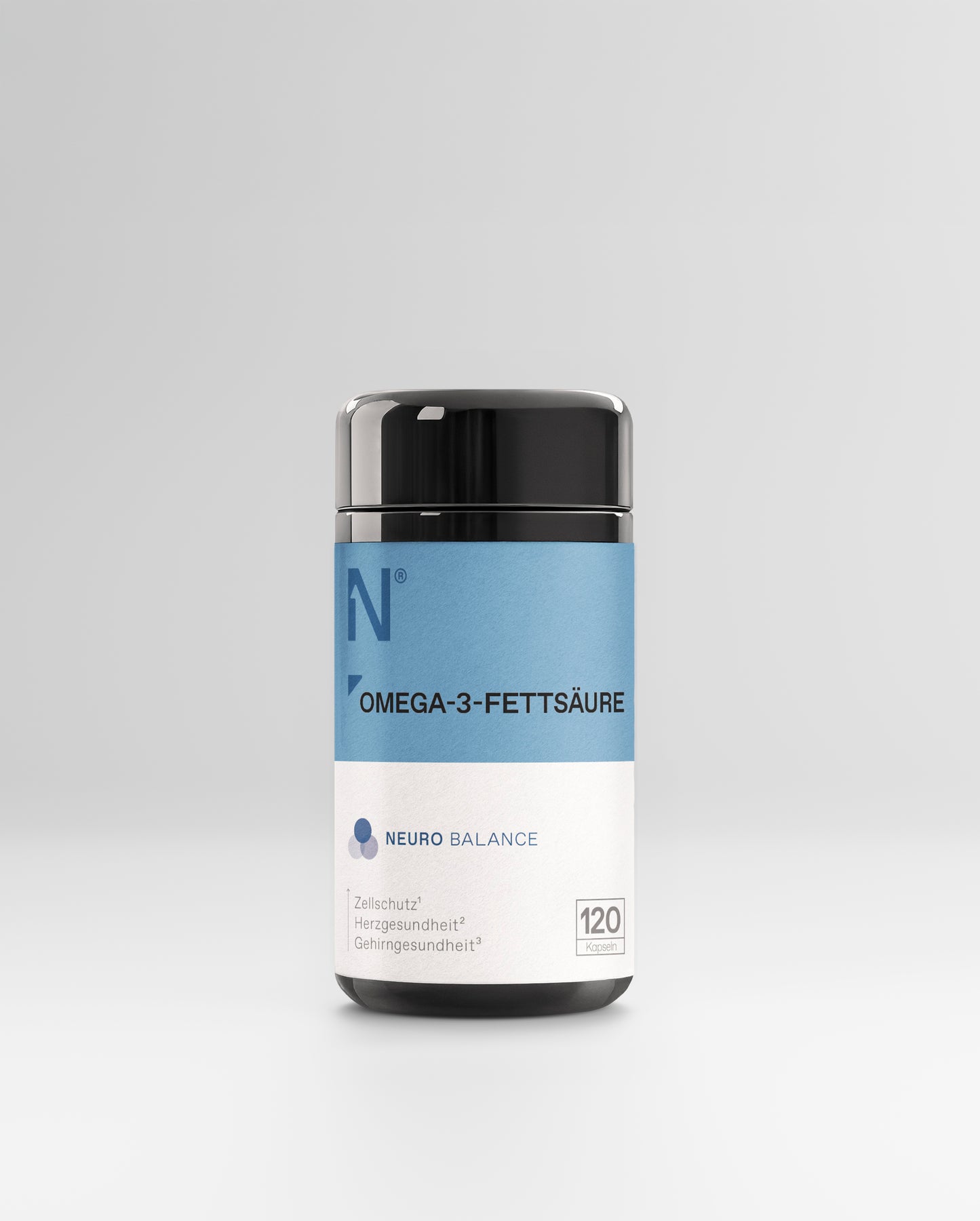
Muscle-building supplements also include Nutrador Omega-3 Fatty Acid Capsules, as eicosapentaenoic acid and docosahexaenoic acid with their anti-inflammatory properties can accelerate the regeneration process of micro-injuries in muscles caused by intense training. Studies show that omega-3 can help with muscle protein synthesis, thereby improving muscle growth, minimizing pain after exercise, and strengthening heart health for optimal physical performance. Nutrador Omega-3 Fatty Acid Capsules also provide joint protection and can help relieve joint pain. Besides the benefits for muscle building, omega-3 fatty acids in nutraceuticals for hair also support hair health and hair growth.
Tips for effective use of supplements
For muscle-building supplements to have the best possible effect, proper use, dosage, and timing are crucial:
The right timing for taking muscle-building supplements
- Pre-Workout: Certain supplements like creatine or beta-alanine are taken on training days before exercise to increase performance, provide more energy, improve focus, and enable better blood circulation. The best muscle-building supplements include creatine, caffeine, taurine, citrulline, and the amino acids L-tyrosine and beta-alanine, which are intended to enhance fitness during training. For optimal effect, the intake time should be about 30-45 minutes before exercise.
- Post-Workout: Supplements also serve a specific function for muscle building after training. To promote muscle recovery after intense workouts, the intake of proteins and carbohydrates is recommended to replenish glycogen stores. According to the study "The effect of glutamine supplementation on recovery after exercise" by Walsh, N. P., & Gleeson, M., glutamine also helps with muscle regeneration and reduces muscle soreness. Supplementation improves muscle protein synthesis, allowing the muscle to recover and build. The timing of supplement intake should be between 30 and 60 minutes after training, as the body is particularly receptive to nutrients during this time.
- Supplements without a fixed time: To improve general health, certain supplements such as Omega-3 fatty acids and vitamins like vitamin D and vitamin C can be taken throughout the day. While vitamin D promotes calcium absorption and is therefore important for bone and muscle health, vitamin C supports the immune system and minimizes cell damage caused by oxidative stress during exercise.
Dosage of muscle-building supplements
There are different dosage recommendations for muscle-building supplements, which depend on the type and body weight:
- For proteins, the general recommendation for a daily dose is 1.5 - 2.5 g per kilogram of body weight. The exact amount depends on individual needs, training intensity, and training goals.
- For glutamine, a daily dose of 5 - 10 g per kilogram of body weight is recommended to promote muscle recovery.
- The daily dosage of essential amino acids (BCAAs) is 5 - 10 g per kilogram of body weight to support muscle protein synthesis.
- For creatine, there is a daily recommendation of 3 - 5 g, which can be higher at the beginning for some athletes.
- For an anti-inflammatory effect in the body, the intake of 1 - 3 g of Omega-3 fatty acids per day can also be useful.
Combination of supplements
To achieve the best effect, some muscle-building supplements can be combined:
- To enhance muscle growth after training and promote regeneration, the intake of proteins and carbohydrates is recommended.
- Calcium and magnesium stimulate energy metabolism and can be taken with potassium and vitamin D to strengthen muscle function and heart health.
- Creatine and Omega 3 support muscle health: While creatine strengthens muscle power, Omega 3 reduces inflammatory processes in the body, leading to better regeneration.
Other factors for muscle building and healthy fitness
Besides supplements for muscle building, there are other factors that should be considered for optimal results. Dietary supplements alone are not enough; a balanced diet, adequate fluid intake, and a healthy lifestyle are also important for muscle growth.
Balanced nutrition
Since the body uses a lot of energy and calories during training, athletes must consume sufficient and proper energy sources for muscle building. These mainly include proteins, fats, and carbohydrates as well as vitamins and fiber, which ensure nutrient supply and prevent energy deficits. Protein-rich foods include lean meat, fish, low-fat dairy products like yogurt and quark, as well as plant-based protein sources such as oats, nuts, lentils, or chickpeas. For carbohydrates, it is important that they provide long-lasting satiety and keep blood sugar levels stable. Whole grain pasta, quinoa, brown rice, as well as oats and spelt are well suited here. Healthy fats are found in salmon, rapeseed oil, walnuts, herring, and seeds.
Adequate fluid intake
To keep the body healthy and capable, adequate fluid intake is essential. Since the human body consists of 70% water, dehydration affects all bodily functions – including muscle regeneration and recovery. To support muscle growth and prevent cramps and fatigue, the right amount of water is crucial. While the general recommendation is 2 - 3 liters of water per day, the need is higher for athletes. To support optimal performance, half a liter of water should be drunk before training, about 250 ml every 20 minutes during training, and another half liter after the workout.
Healthy lifestyle: Restful sleep and stress reduction
A healthy lifestyle with restful sleep and as little stress as possible also affects muscle growth. Since the body supports muscle growth at night through hormonal processes, sufficient and good sleep is especially important. To promote muscle regeneration, the body needs at least 7-8 hours of sleep per night. Regular stress reduction also plays a role in effective muscle building: too much stress increases cortisol levels, which studies show has a long-term catabolic effect and breaks down muscle mass. Stress levels in everyday life can be reduced with walks, meditation, or yoga. In general, rest days during training sessions are also important because muscles regenerate during this time and the body can absorb new energy.
Conclusion: Supplements for muscle building
Dietary supplements can provide valuable support for muscle building when used correctly and purposefully. With proteins, creatine, amino acids, and omega-3 fatty acids, you can reach your training goals faster and promote the growth and recovery of your muscles. The supplements from Nutraceuticals contain high-quality formulations and essential nutrients tailored to the needs of athletes. With the right combination and dosage of dietary supplements, along with a balanced, healthy diet, adequate hydration, restful sleep, and a healthy lifestyle, you can effectively build your muscles and achieve peak athletic performance.
Legal notice regarding health-related claims:
Our information is for general informational purposes only and does not replace medical advice. Dietary supplements do not replace a balanced diet and healthy lifestyle. Health-related claims about dietary supplements must comply with the Health Claims Regulation (EC) No. 1924/2006 and be approved by the European Food Safety Authority (EFSA). If you have health concerns or questions, please consult a doctor.
FAQ
Are dietary supplements necessary for muscle building?
Dietary supplements are not a requirement for building muscle but can effectively support you. Proteins, unsaturated fats, carbohydrates, vitamins, and nutrients are essential for muscle growth. If a normal diet is sufficient, supplements are not necessary. In case of a deficiency, they help optimally support muscles and the body during exercise.
When should I take my supplements?
The timing of intake depends on the specific product: fat-soluble vitamins (A, D, Omega-3) should be consumed with a meal. Calcium requires stomach acid and should be taken with food. Proteins are flexible but ideally taken 30 - 60 minutes after exercise. Creatine and amino acids are most effective 30-45 minutes before training to enhance performance.
Can I combine multiple supplements?
Yes, various supplements can be combined to promote muscle recovery and performance. A good combination is proteins and BCAAs, which support muscle growth. Creatine and beta-alanine also work synergistically: creatine increases energy production, while beta-alanine reduces muscle fatigue.
Legal notice regarding health-related claims:
Our information is for general informational purposes only and does not replace medical advice. Dietary supplements do not replace a balanced diet and a healthy lifestyle. Health-related claims about dietary supplements must comply with the Health Claims Regulation (EC) No. 1924/2006 and be approved by the European Food Safety Authority (EFSA). If you have health complaints or questions, please consult a doctor.











